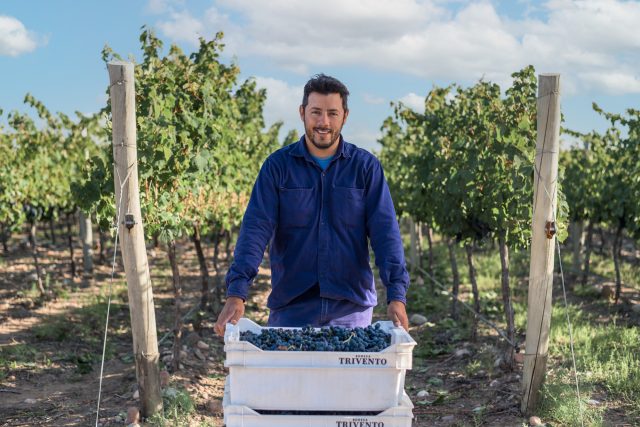This website uses cookies so that we can provide you with the best user experience possible. Cookie information is stored in your browser and performs functions such as recognising you when you return to our website and helping our team to understand which sections of the website you find most interesting and useful.
Values meeting value: Trivento’s business case for sustainability
Head of sustainability Mercedes Álvarez speaks to db about integrating sustainability into the Mendoza producer’s business model.

Forget any tree-hugging, New Age stereotypes when talking to Mercedes Álvarez, Trivento’s head of sustainability. As she speaks from Argentina, Mendoza’s morning sunlight filling the office behind her, she is passionate and direct, articulating the tricky balance in promoting sustainability for an international company. She means business.
Founded in 1996, the company has been practicing sustainability for a long time. However, much of it predated the creation of a dedicated department and was disjointed. “There were actions and they were good, but by integrating sustainability into the business strategy we made sure to track and evaluate the effectiveness of these actions.” The new structure meant accountability.
“I’m at the table where decisions are taken,” she explains. Where decisions might previously have incorporated sustainability as an idealistic afterthought, Álvarez can now raise it at every level. Her advocacy means that it permeates all levels of the company’s processes: “every decision whether that’s buying a vineyard or cleaning a bottle has to factor it in.” If she feels the pressure of the role, where she now has to track and justify a raft of initiatives, she does not let it show.
Instead she relishes the challenge of meeting sustainability goals. Álvarez is keen to stress the equality of the three pillars of sustainability: environmental, social and economic. Everything must fit the overall economic plan, but Trivento has nonetheless made great progress on social and environmental goals.
The social component was the first pillar to fit into the strategy. In 2008, Trivento established a classroom in its facilities. The scheme, the first of its kind run by a Mendoza business, allowed Trivento staff to complete their high school education, with support and mentoring from within the company. This year, it expanded the provision to members of the local community. Meanwhile, since 2019, sales of the company’s White Malbec help fund scholarships across the country through the Fonbec scholarship program.
I suggest an English idiom – ‘charity begins at home’ – as a suitable summation. Álvarez is quick to rebut it. “It’s not charity,” she says. “It’s not just about giving and not seeing what happens. It is important that the beneficiaries commit to improving and completing the school.”
Instead of being charity, positive social initiatives have become a key investment for the producer. For employees, there are better opportunities for promotion and the possibility of improving the lives of their children. For Trivento, there has been better team retention, greater commitment and motivation. For the community, it opens opportunities to complete their studies.

As for the region’s environmental situation, Álvarez opens with a stark assessment: “Mendoza has a very fragile ecosystem. We are a desert.” That fragility has engendered a responsibility to the landscape.
Safeguarding its lands, particularly through water management, is high on Trivento’s agenda. Though water is an incredibly cheap commodity in Argentina, the potential environmental cost far outweighs the spend.
To this end, the company has invested heavily in irrigation. 96% of Trivento’s vineyards have drip irrigation, with precision irrigation key to the programme. Not only does this reduce waste, but it also attends to the vine’s needs according to the variety, soil analysis and real-time meteorological data.
Álvarez tells us, “if you have a good irrigation system, you will be able to give the plant the amount it needs and also give it in the moment it is needed.” The precision control allows grapes destined for different bottlings to grow differently: “it is also a tool for the wine that comes at the end.”
Efficiency is likewise key in the company’s energy strategy. Alvarez’s mantra is to reduce usage – “the best energy is the energy we don’t use.” It has led to initiatives such as lighter bottles, which considerably reduce the energy used in transportation.
There is also an ambitious program of solar panels across Trivento’s buildings, providing clean energy for the company. Where space for solar panels is limited, and with little renewable energy on the Argentinian market, the company offsets the rest of its electricity emissions with iREC certificates. As Álvarez explains, it is not only positive for the environment, but also for the renewable industry: “This shows that there is demand for this type of renewable energy plant installed anywhere in the world.”
That drive to make the business case is perhaps the most impressive facet of Trivento’s sustainability project. As a large producer, its initiatives have a tangible positive impact, but also are advocating for sustainability as good business sense across the industry. As it continues to move forward, the case grows stronger each year.
Related news
How analytical insights help craft fine Languedoc wine

